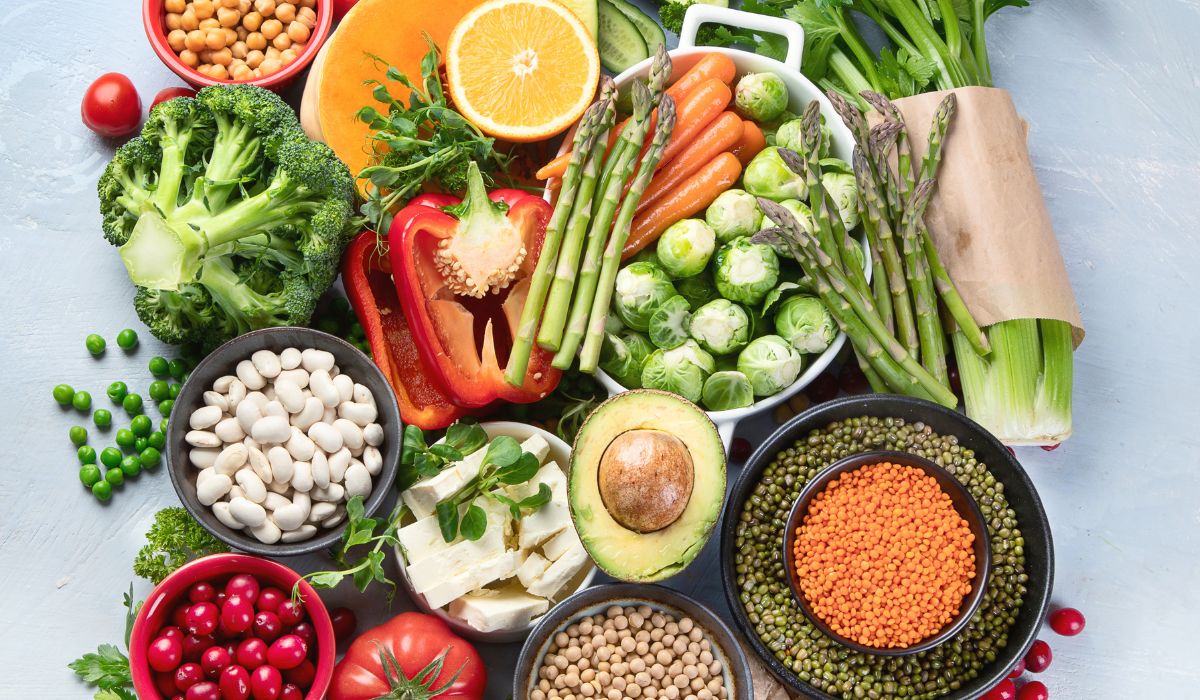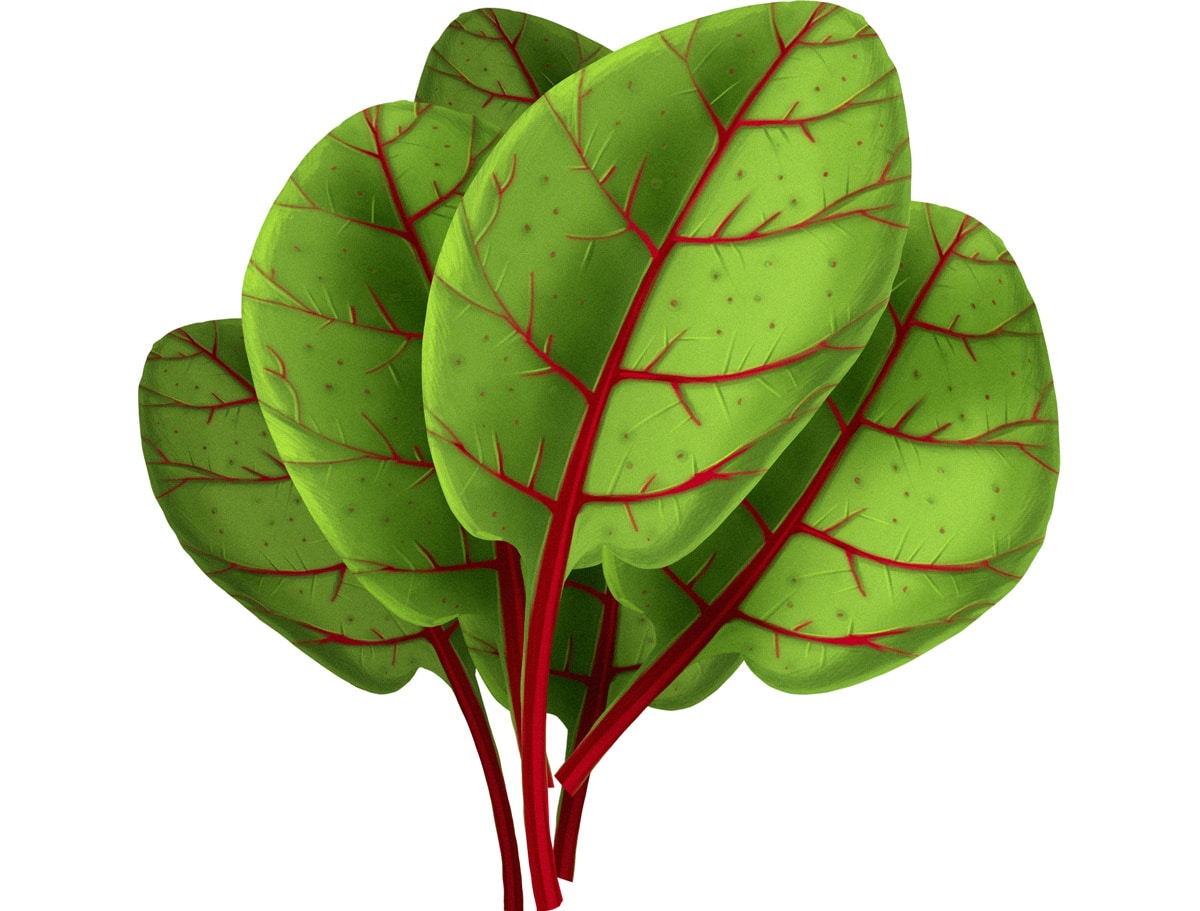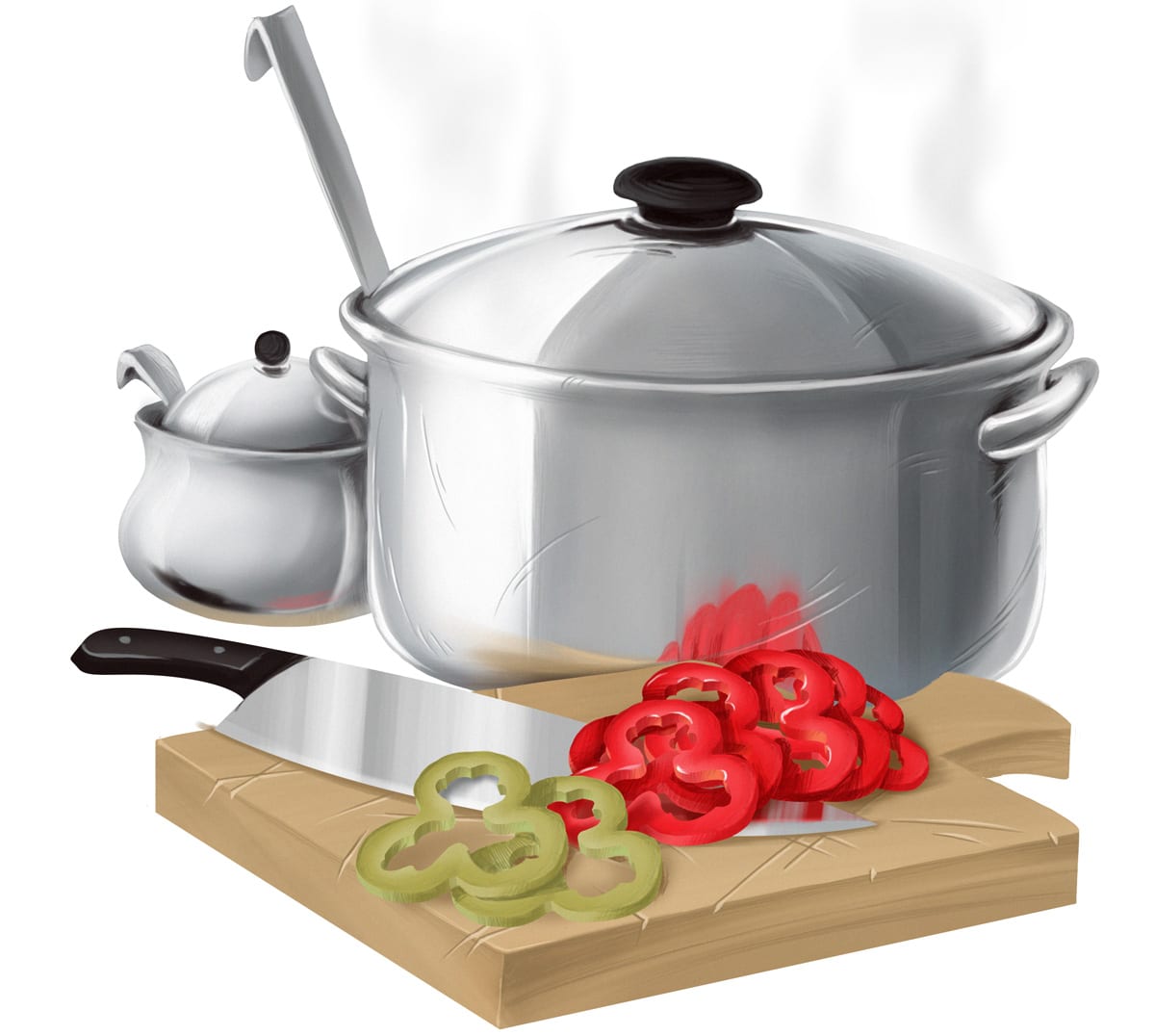
Outside of Paleo circles, “vegetarian” and “vegan” are still more or less synonymous with “healthy,” and most people still have a vague idea that meat (especially red meat) is bad for you. This can really get under your skin - even some Paleo folks might have lingering doubts as they stare down a big plate of pork chops.
It’s true that on a population level, vegetarians do tend to be healthier than the average Joe. For example, they’re less likely to get either heart disease or cancer. But here’s the thing: once you break down the reasons why vegetarian diets deliver health benefits, it turns out that completely cutting out meat isn’t one of them In fact, studies like this one that compare a vegetarian diet to a Mediterranean diet (or some other real-food diet with meat) don’t find a huge difference.
The key benefit of vegetarian diets seems to be less about eliminating meat and more about eliminating junk - take a look at some research on 5 major reasons for the health benefits of vegetarian and vegan diets, and how you can still get them even if you’re also eating high-quality animal foods for the important nutrients (conjugated linoleic acid, vitamin B12, heme iron, high-quality protein…) they contain.
1. Appropriate energy density for a healthy weight

Vegetarian diets help weight loss by reducing energy density, but you can do the same trick with any kind of diet.
Energy density basically means how many calories you get in a single bite of food. Lettuce has low energy density (few calories per bite); peanut butter has high energy density (lots of calories per bite). All other things being equal, most people lose weight eating food with low energy density because you get full before you get fat. (Research review, for the curious.)
In the typical American diet, there are two huge sources of high-energy-density foods: processed fats and refined carbohydrates. Most people don’t eat a lot of low-energy-density food (vegetables, soup, lean protein) to balance that out, so when they eat a good-sized meal, they tend to eat a lot of calories from energy-dense fat and carbs.
Vegan or vegetarian diets lower energy density by taking out a lot of fat-rich animal foods (bacon, butter, cheese…) and adding a lot of low-energy-density foods (vegetables). They do keep the high-energy-density carbs (bread, pasta, sugar) because you need to get calories from somewhere!
But instead of keeping carbs and leaving fat, you could also do the opposite and get the same benefit. That’s how Paleo diets manage energy density: keep fatty animal foods and add vegetables, but leave the high-carb foods. Bread and pasta contribute a lot less nutritionally than eggs and meat, so if you’re going to pick one major source of energy density, doesn’t it make sense to go with the animal foods?
2. Reducing cruelty in the world.
One of the best and most admirable things about the vegetarian/vegan approach is the focus on anti-cruelty. A majority of vegans name animal welfare as at least one of their motivations. Even if you disagree with their diet choices, it’s wonderful that so many people in the world are making a serious effort to prevent suffering.
Also, as this paper explains, it's actually good for your health to be altruistic and live for something bigger than your own convenience/weight loss. Altruistic people have better overall health, lower mortality, and better life satisfaction than selfish people.
Living out the principle of anti-cruelty may be one more reason why vegetarians and vegans have generally better health outcomes. Of course, this is more an ethical issue than a scientific one, so everyone will have their own take on this, but there’s certainly an argument to be made that you can also commit to anti-cruelty with an omnivorous diet.
One easy example: buying meat from animals that had good lives, not animals tortured in horrible factory farms. (This is also better for your health!) Another example that even many vegans don’t think about: buying produce from local farms where workers are treated fairly (farmworkers, including children, often endure unbelievably brutal conditions). Not everyone can afford these foods, but a lot of people can and the more people show interest in them, the more they’ll become mainstream and affordable for everyone.
No one person can make totally perfect choices that completely disentangle them from cruelty: if nothing else, all of us, including vegans, rely on fossil fuels that are slowly destroying the planet. There’s no point feeling personally guilty about that - no one person is at fault for it and anyway, it’s more productive to work for change than sit around blaming ourselves for the fact that cars exist. But making an effort to live altruistically and reduce cruelty does have benefits - plus, you know, right thing to do.
3. Actually eating vegetables
This seems almost too ridiculous to be true, but just the simple fact of eating vegetables can be a huge transformation. Only 1 in 10 Americans actually get 5 servings of fruits and vegetables every day, and most of that is from orange juice and fried potatoes. When people switch to a vegetarian or vegan diet, research confirms that they typically eat more vegetables. This study of vegetarian and vegan diets suggested that eating more fruits and vegetables could be a primary reason why these diets cause weight loss.
A lot of the magic of vegetarian or vegan diets could simply be that vegetarians and vegans actually eat vegetables, which shouldn’t set them apart from the general population but totally does. Vegetables don’t just reduce energy density; they also provide critical nutrients and antioxidants to keep your whole body (especially your gut!) happy. As whole foods, they’re way more than the sum of their calorie density or fiber content; they’re a key piece of the human diet.
But you don’t have to be vegetarian to eat some broccoli! Paleo? Keto? Any one of the million 30-day challenges? All fine - the research above suggests that as long as you’re eating at least some vegetables, you’ll get a lot of the health benefits that people typically ascribe to vegetarian or vegan diets.
4. Home cooking
Sure, there’s vegan junk food (and Paleo junk food, when it comes to that), but it's still the case that many vegans

start relying a lot more on minimally processed and/or home-cooked meals instead of highly processed junk. Being a vegan semi-forces home cooking since there just aren't a ton of easy and cheap options for vegans in your average 7-11 or Dunkin donuts.
Studies like this one show that eating home-cooked meals is associated with a lower risk of obesity and when researchers teach people to cook, the subjects generally eat more nutritious food. (As studies go, this is kind of a gimme: studies show that home-cooked meals are better than freezer pizza! No kidding! Still, it’s nice to have evidence).
But there's no need to be vegan to cook your meals at home - the sudden lack of takeout and freezer-aisle options is a familiar issue for Paleo folks as well. Just like with the vegetables and the calorie density, this isn’t so much a vegetarian-specific benefit as it is a factor of generally caring about your diet.
5. Passionate community of people who also care about their health
People who go vegetarian or vegan benefit from a huge number of support groups, both online and off, but again, that’s not restricted to any particular type of diet.
This study on vegetarians found that almost all long-term vegetarians were part of at least one vegetarian/vegan community - they used in-person and online communities as sources of emotional and practical support. This is valuable for two reasons:
1. As the study explains, it helps people actually stick to their diets.
2. Humans crave community, and most of us are incredibly deprived of meaningful social groups. Being part of a vegan or vegetarian group is likely to improve your health by improving your social connections, completely regardless of what you do or don’t eat.
This social aspect is likely another reason why vegans and vegetarians enjoy better health - they have something to bond with other people about, so they have stronger social ties and better luck sticking with their eating plan. But once again, there’s absolutely no reason why you couldn’t do this with any diet. There are a million Paleo Facebook groups, forums, Twitter and Instagram accounts, and real-life meetup groups to choose from - pick your favorite and enjoy!
You can also be a Paleo vegetarian/vegan
A lot of people eat a vegetarian/vegan/pescetarian diet with great success - the point here isn’t that vegetarian or vegan diets are bad. The point is that the good points about them don’t necessarily come from getting rid of meat; they come from other things like eating more vegetables - things you can imitate even on a meat-inclusive diet like Paleo.





Leave a Reply